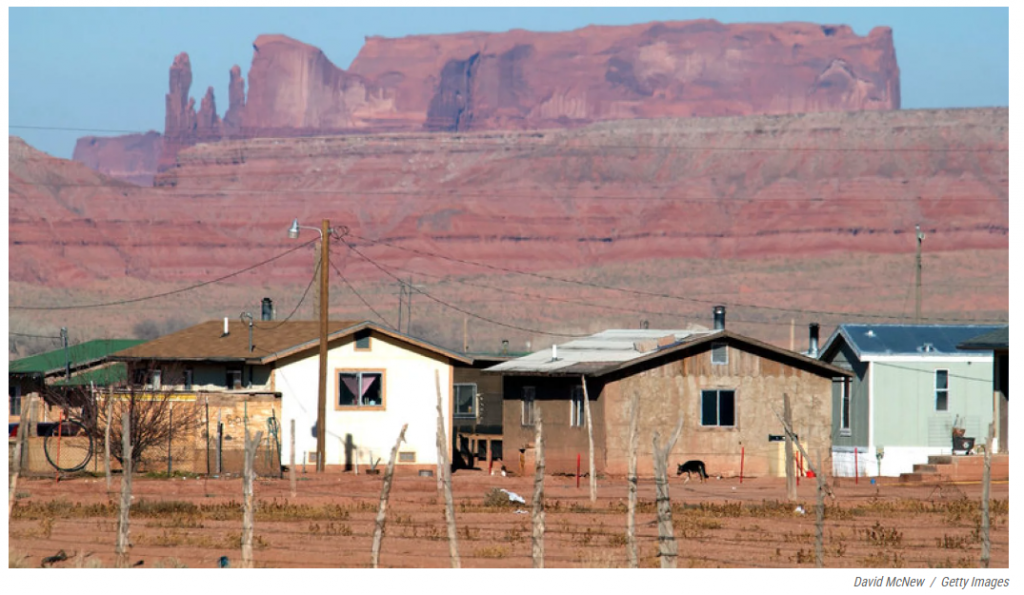KNAU News Talk – Arizona Public Radio | By Melissa Sevigny
Published February 9, 2024 at 4:00 AM MST

A report from the National Community Reinvestment Coalition highlights the difficulty of getting bank loans on the Navajo and Hopi nations. The authors say a lack of access to banking services has profound effects on housing, business, and public health.
Historically banks denied loan applications in impoverished or minority communities, a practice known as “redlining.” It’s now illegal but the report’s authors argue redlining effectively continues on tribal land, where none of the three largest home lenders in the U.S. offer mortgages for new houses.
“It’s a different form of redlining but we think the impact is the same,” says Jason Richardson, one of the report’s authors. “It starves these areas of capital, it starves the people who live there of the ability to build wealth or build businesses, and it kills them at a lot younger age than you see in the rest of the country.”
The report says Native people are much more likely to live in manufactured houses and rely on predatory, high-interest loans.
And, in recent years tribal areas in Arizona and New Mexico received only a tiny fraction of the money loaned to small businesses, as well as fewer pandemic-relief loans.
A 1977 act designed to combat redlining was updated last year to specifically include Native Nations. Banks and trade groups filed a lawsuit against the updated rules this week.

Source: Report highlights lack of access to bank loans on Navajo and Hopi (knau.org)
